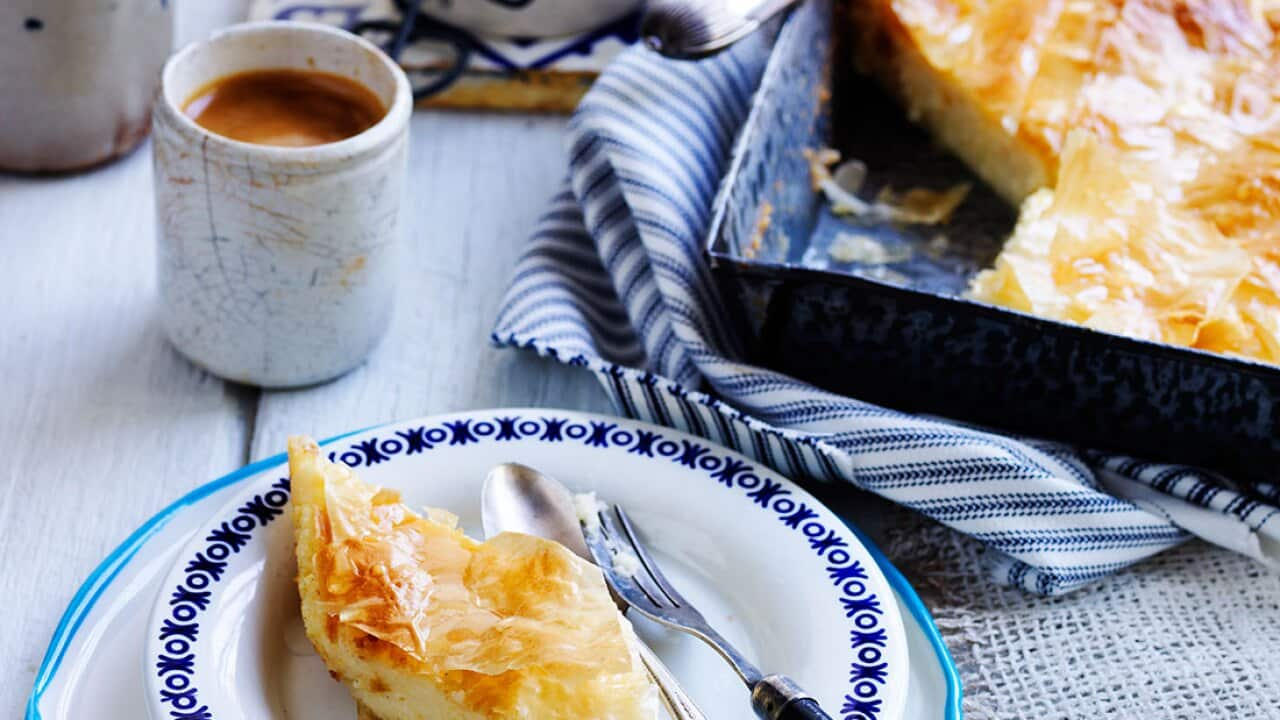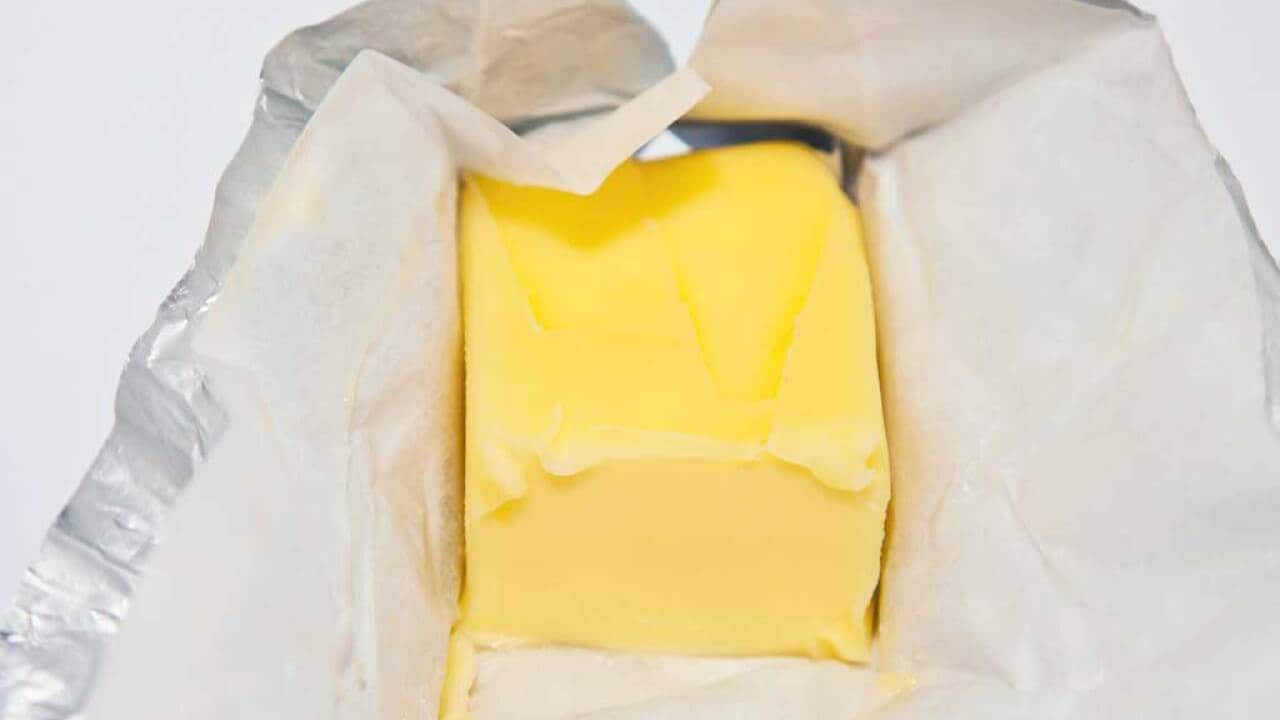For when you have 125g of butter at-the-ready... or better yet, 250g that you can use twice, thanks to these recipes below.
This classic French bread is rich and slightly sweet, with a soft, golden crust and a yellow, buttery, cakey crumb. It is widely eaten in France - with coffee for breakfast, as a roll with dinner, or as a base for any number of desserts. This recipe uses 100g of butter for the base - we suggest toasting it and slathering the remaining 25g to enjoy!

Buttery sliced brioche
Brown butter with a difference! Flavoured with fish sauce, ginger and spring onions, this flavoured butter is a great way to jazz up any shellfish, from oyster to lobster.

Scallops with burnt butter sauce and sea urchin Source: Alan Benson
Unlike its tahini cousin, this particular helva (halva) is made with a sweet dark roux. It uses equal parts sugar, butter and flour, so simply cook off your half a block of butter with 125g of sugar, 125g of flour, and 60ml (¼ cup of water) and you're set!

Sweet and crumbly, flour helva is an easy Turkish dessert worth discovering! Source: Murdoch Books
One of our favourite French pastries! When it comes to baking the palmiers, keep in mind a few burnt edges is a good thing, otherwise, the palmiers will taste too sweet. Do be careful though – sugar turns from perfect amber to burnt within seconds, so be very attentive during those last moments of cooking. The whole recipe uses a whole block of butter, so simply halve it for a sneaky mid-week treat.

Palmier (palm hearts or pig’s ears) Source: China Squirrel
Mastering a simple pastry is all about one philosophy: less is more. Don't overwork the dough, and all will be fiiiine. Well, almost. Good news is, once you've mastered it, you can make ! All with one versatile pastry recipe, and a half a block of butter. You can thank us later. This pie calls on 125g of butter for a rich - this apple pie (pictured below) just got a little wild!

For many of us, the golden crust is the best part of a pie! Source: Yossy Arefi
Traditionally baked in the residual heat of the hearth overnight on Friday and served for breakfast or brunch on Sabbath (Shabbat) with boiled eggs, tomato salsa and a hot green chilli sauce called zhug sahawiq or skhug, this bread is rich with both flavour and history. The long slow baking causes the butter between the layers of dough to caramelise, giving the bread an even deep golden colour and distinct, but mellow, flavour right to the core.

Jewish Yemeni Bread (kubaneh) Source: Alan Benson
Mary Queen of Scots' fondness for shortbread is said to be the reason for its increased popularity in the 1500s. Nowadays it is loved so much there is even a National Shortbread Day on the 6th January each year! The key to good shortbread is slow baking until it is pale golden and cooked through – if over baked or baked too quickly, it will become slightly bitter in taste due to the ‘burnt’ butter. This recipe uses a whole block of butter to make two discs of shortbread - perfect for halving to use up your 125g!

Scottish shortbread Source: Alan Benson
Any Italian will tell you that they grew up eating home-made apple cake for breakfast or la merenda, the afternoon snack. The hefty dose of eggs makes it airy, but substantial, while the apples give it a semblance of wholesomeness that allows for second helpings. The pantry staples of butter, flour, eggs, sugar and milk make the ultimate base for Golden Delicious apples to spread their wings. Lead image by Sheenghun Lin via .
Lead image by Sheenghun Lin via .

Vintage apple cake Source: Guardian Faber
Have we got your attention and your tastebuds? airs every weeknight at 6pm on SBS followed by an encore screening at 9.30pm on SBS Food Network. Episodes will be available after broadcast via . Join the conversation #TheChefsLine on Instagram , Facebook and Twitter . Check out for episode guides, cuisine lowdowns, recipes and more!
More buttery goodness

Semolina custard pastry with syrup (galaktoboureko)








